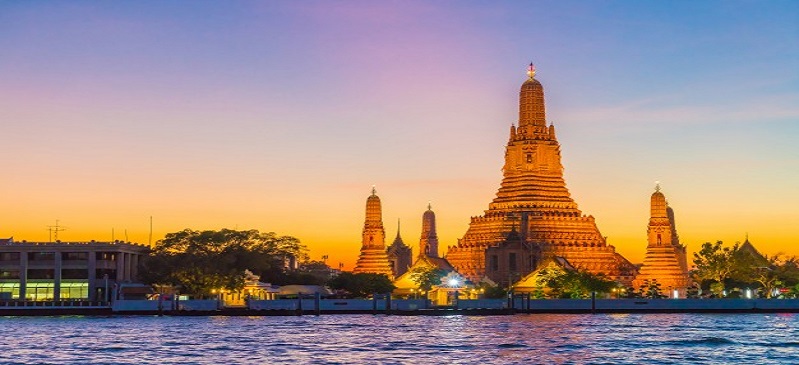
Supercharged with subtle idiosyncrasies, the Thai culture is often something of a puzzle to the outsiders. Handshakes are rare and the most valued thing in Thailand is the wai- a gesture used to show honor or social status.
The use of wai, the spoken language and the word choices are vital signals of proper etiquette. Other than being a sign of respect, the wai gesture is also a way of greeting, conveying sincere apology or simply saying goodbye.
Woven tightly into the thread of the Thai culture are many small but significant social conventions that determine status in society. In this community, a person’s status is indicated by wealth, marital or family connections, age, education and the type of job one holds.
Official Thai Languages
Thai is the acknowledged language spoken in Thailand. It is used to communicate all official issues, and so when it comes to matters of government policies, Thai Document translation is crucial for ensuring accurate conveyance of administrative directives in a different language.
Having links with India, the Thai language is pronounced using five different tones. It is comprised of 32 vowels and 44 consonants, and it shares several linguistic similarities with the Laotian dialect although the written scripts are somehow different. Learning Thai is often a huge challenge to foreigners from the western countries who wish to Learn the Thai Language because of the tonal contexts of its usage. In total there are over 70 dialects spoken in the country, mostly by rural hill tribes.
English as an Administrative and Commercial Language
Depending on whether a person is in the north or south, you will notice that there are distinct dialects used in different regions. But apart from Thai, there are other languages that are also used in specific locations or situations.
For instance, commercial activities and affairs of government are mostly transacted using the English language. Consequently, all tourists and foreigners must access assistance from an expert Thai English translator to facilitate efficient and meaningful interaction with the locals.
In all the institutions of higher learning like the universities and secondary schools, the English language is taught, and it is regarded as the official second language. English speakers who visit the country cannot have difficulties in following conversations. The other spoken languages apart from Thai and English are Lao, Chinese, Malay, and Mon-Khmer.
Interestingly, the other place outside Thailand where Thai is mostly spoken is in the USA. There are large concentrations of Thai speakers in California state especially around Los Angeles.
Family Ties and Values
The family unit is valued highly in the Thai society. Love for the extended family comes above everything else. In terms of financial support and domestic chores, the younger members of the community take the responsibility of taking care of the elderly.
Social status and stratification are keenly observed in the country. However, there is no fixed status for an individual because this is largely determined by their circumstances. A person can either lose or gain status in regard to wealth, employment etc. During social events, status play a vital role in controlling how people relate and interact. Traditionally it is the high earners who are expected to pay the bills.
Matters of Social Etiquette
The Thai are known as a smiling people, but their smiles can be deceiving and, in most instances, might mean something totally different from what one expects. Facial expressions are considered to be a reflection of the inner person. In a place where modesty and decorum are highly priced, shame and respect matter a lot.
Visiting another person’s homestead without presenting a small gift is frowned upon as a show of disrespect. And that also applies to failure to remove one’s shoes before entering a house. There are various ways in which a person can lose face and so the Thai take exceptional care not to suffer public shame or humiliation. They avoid public yelling at others.
Thai’s Unique Religion, Customs and Culture
Theravada Buddhism is the dominant religion. It is heavily influenced by worship elements from different cultures especially from the Chinese and the Hindu belief systems. In worship, animist practices and beliefs are central to religious devotion.
It is not uncommon to see people go about while carrying talismans or putting on amulets to ward off evil spirits. Notions about ghosts and spirits are so strong and are deeply rooted. They precede Buddhism. That is why nearly every household has a shrine for the spirits.
The shrines are found in all manner of places, and they are specially decorated. People present offerings in these spirit houses daily. All large trees are also believed to be the abode of spirits.
Monks are integral to religious practices, and they are respected and revered highly. Any form of disrespect to the monks is unheard of in Thailand. Women are forbidden from having any contact with them. Other religions like Christianity, Mahayana Buddhism or Islam are also practiced, but only to a limited degree.
Generally, life is daily regulated by sanuk. This is a concept which emphasizes that life should always be fun. People believe in the spirit of reciprocity and indebtedness to guardians, teachers, caretakers and parents. In all social interactions people are expected to display positive emotions at all times.
In a word, Thailand is a place of serenity.
